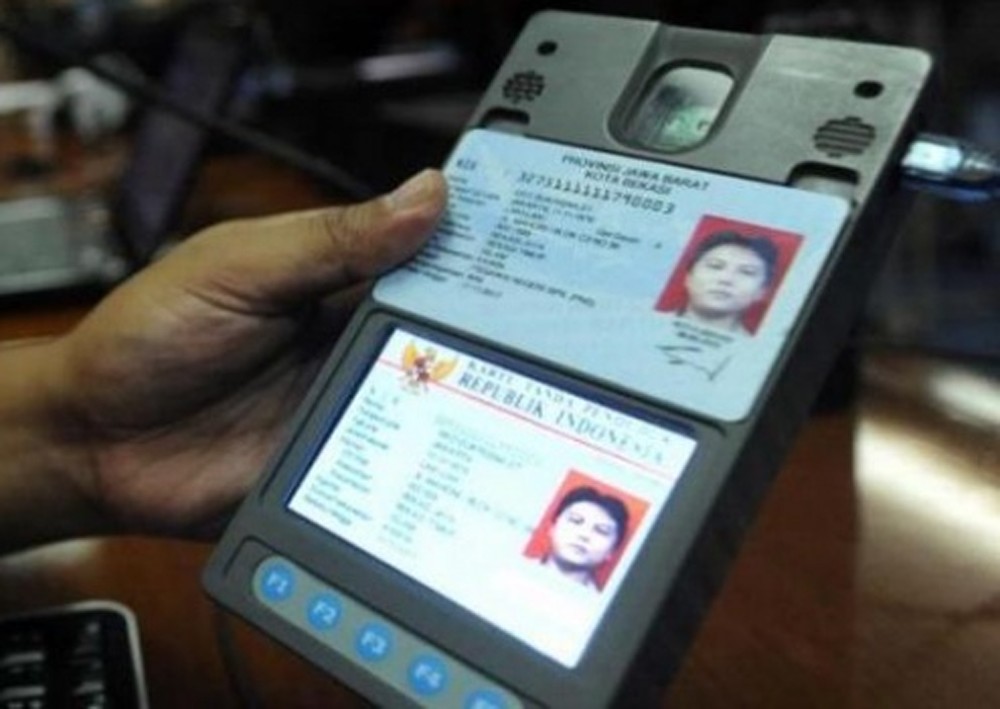Small details stymie govt’s tech vision
Change Size
 An official at the Home Ministry demonstrates how a device reads a chip inside an e-Identity Card (e-ID). (kompas.com/Hendra A Setyawan)
An official at the Home Ministry demonstrates how a device reads a chip inside an e-Identity Card (e-ID). (kompas.com/Hendra A Setyawan)
W
hile President Joko “Jokowi” Widodo is dreaming of national connectivity and an advanced Indonesia, the government is still struggling to put in place the most basic administrative system, in the form of electronic identification cards (e-ID), for all citizens.
In his state address ahead of Independence Day this month, Jokowi said that to realize an “advanced Indonesia”, the government is committed to providing infrastructure, including telecommunications, in all regions to strengthen national connectivity.
But the commitment seems to have stumbled over the technical details of his digital vision.
A lack of supplies and tech-illiterate officials have hampered the migration from a manual recording of names in the civil registry to the nationwide centralized online system that began to be used in 2012.
Even in Jakarta, the country’s capital that has been equipped with the most sophisticated telecommunications infrastructure, there are still 17,000 people, about 3 percent of total residents, who do not yet possess the cards, also locally known as e-KTP.
“We several times faced delivery delay of e-KTP forms from the Home Ministry. However, we have urged the ministry to send the forms as soon as possible,” said Jakarta Population and Civil Registration Agency head Edison Sianturi on Thursday.
The situation is worse outside of the capital. While some regions share the logistics shortage problem that Jakarta is facing, some are also struggling with poor technological tools they must use to record citizens’ data.
In Kupang, East Nusa Tenggara, for example, only two out of six e-KTP recording machines are working. Four of the machines have been broken since last year, forcing citizens from other parts of the area to go to the Oebobo and Alak regencies, where machines still work, in order to have their e-KTP recorded.
The limited tools available, as well as a lack of e-KTP forms, have hampered officials from local administrative offices from satisfying the huge enthusiasm from the public to get e-KTPs.
Local administrative offices can only issue on average 130 e-KTPs every day, although more than 200 residents show up daily to receive theirs.
Similar problems were also found in other cities, such as Surakarta, Makassar and Pontianak.
“I flew back to Pematang Siantar from Jakarta a few days ago specifically for creating an e-KTP. Unfortunately, I wasn’t able to get one yet because they ran out of blangko,” said Dennis Ng, 58, a resident of Pematangsiantar who currently resides in Jakarta.
Blangko are blank cards that consist of seven layers and chips, used to create e-KTPs.
Dennis said that when he arrived at the district, the officers only recorded his fingerprints and retinal eye scans. The officer asked him to wait an undetermined time for his e-KTP. Thus, he decided to come back to Jakarta.
The Home Ministry said that almost 162 million people have already registered for e-KTPs. The remaining 20 million people who have not received theirs come from West Java, East Java, Central Java, Sumatra and Lampung. The government recently set the end of September as the deadline for everyone to have an e-ID.
The government has threatened that if citizens fail to obtain theirs, they were not able to use many public services, such as receiving driver’s licenses, opening bank accounts and obtaining health insurance through the Social Security Management Agency (BPJS).
Home Minister Tjahjo Kumolo admitted that besides logistics problems, the lack of tech-literate officials makes the problems even more daunting. “We do apologize for lacking things here and there,” Tjahjo said.
— Andi Hajramurni from Makassar, Djemi Amnifu from Kupang, Severinus Endi from Pontianak and Ganug Nugroho Adi from Surakarta contributed to the report.









